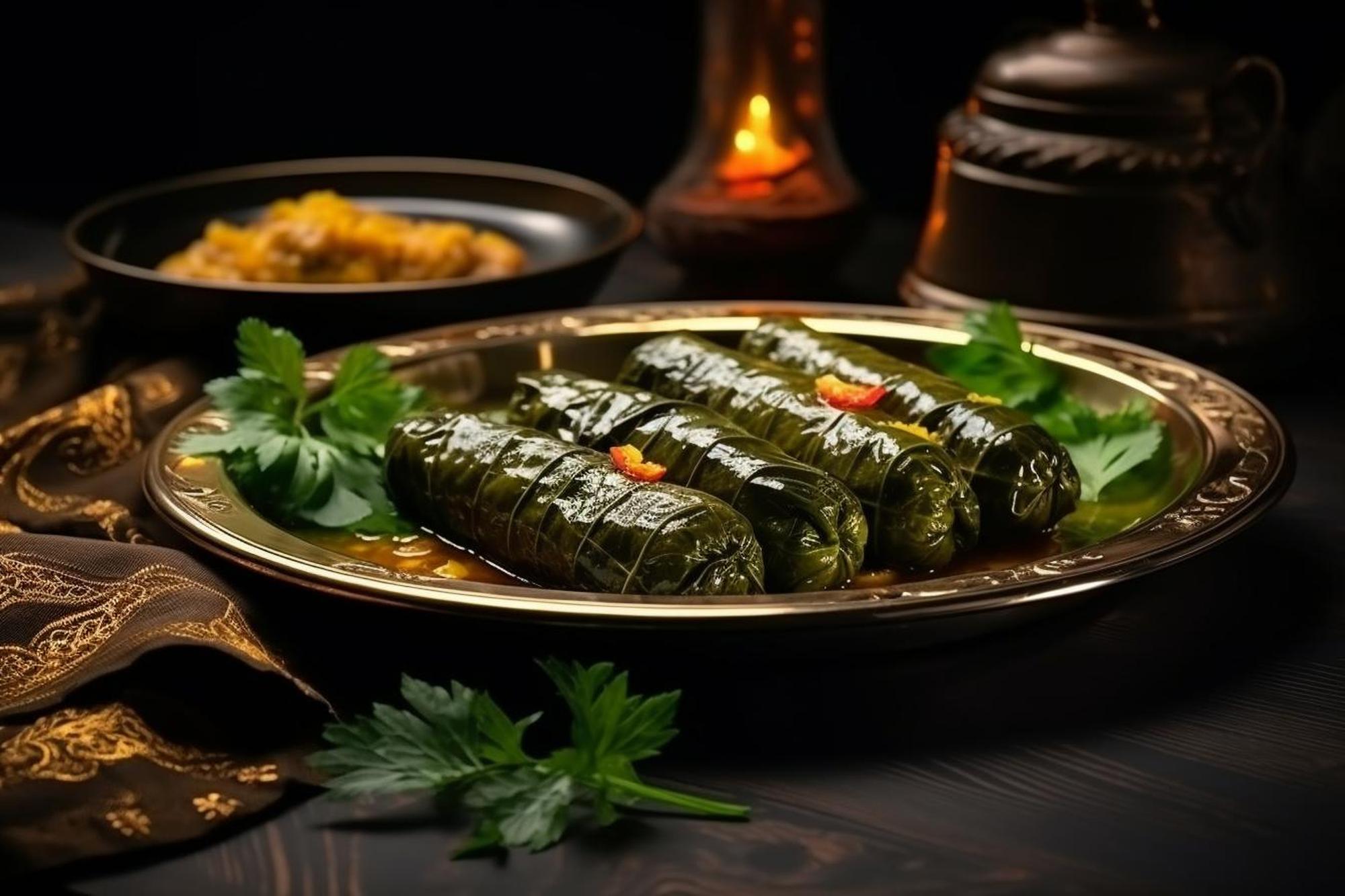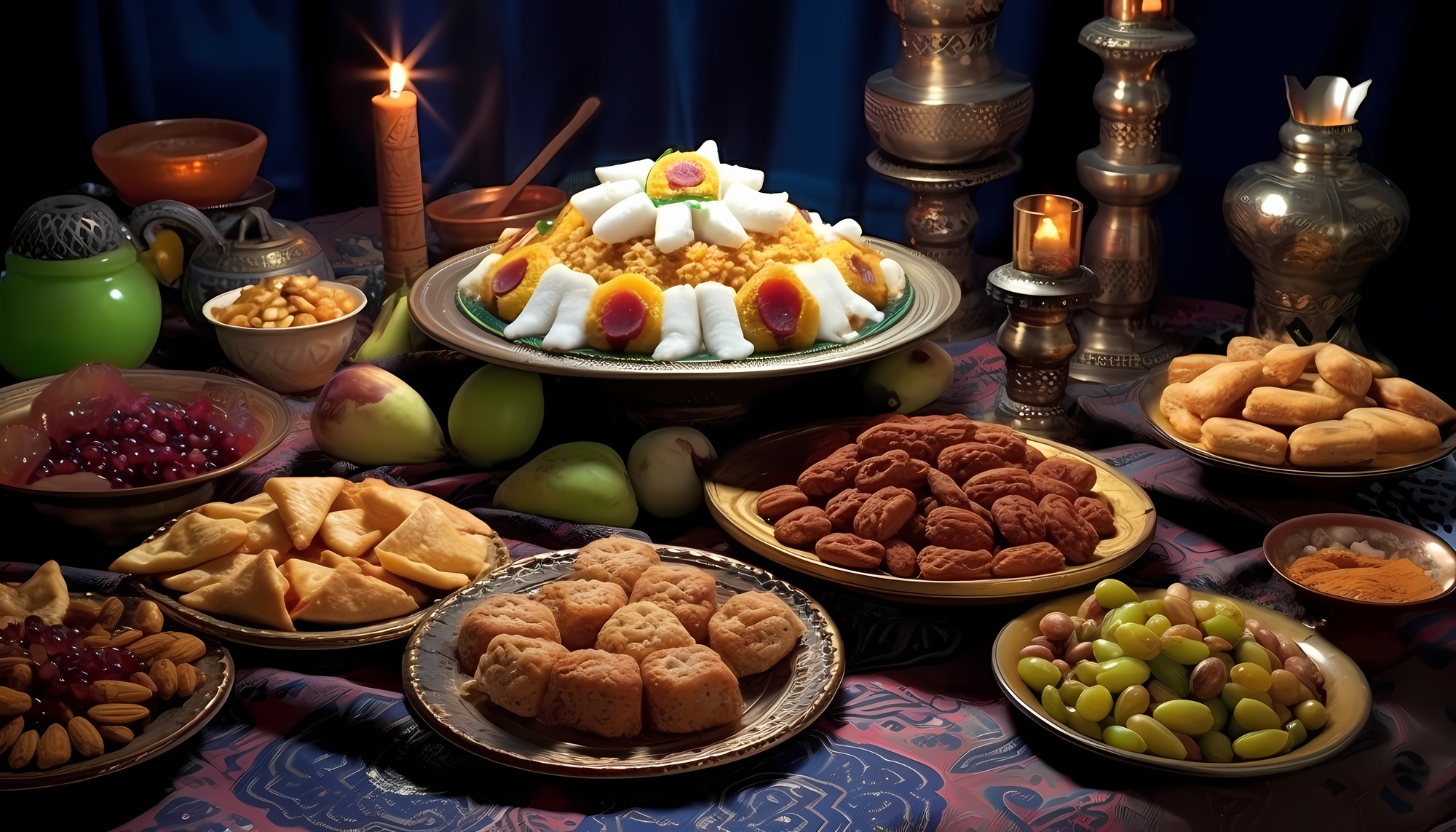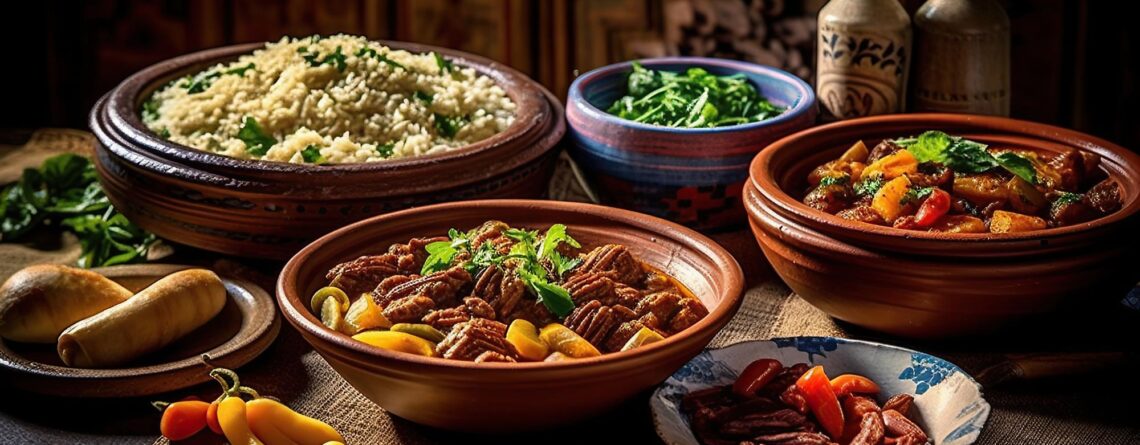5 Traditional Iraqi Foods You Can’t Miss
Nova Parker2024-05-19T07:39:19+00:00Iraq, a country known for its rich history and diverse culture, offers a culinary experience like no other. Its traditional food reflects the nation’s heritage, blending flavors from various regions and communities. From aromatic spices to succulent meats, Iraqi cuisine is a feast for the senses. Let’s delve into the delectable world of Iraqi traditional food, including the renowned Dolma Iraqi and other iconic dishes.
Exploring the Flavors of Iraq:
Iraqi cuisine is a melting pot of influences from ancient Mesopotamian, Persian, Turkish, and Arab culinary traditions. Each dish tells a story, preserving age-old recipes passed down through generations. One cannot talk about Iraqi food without mentioning its vibrant spices, such as saffron, turmeric, cinnamon, and cumin, which add depth and richness to every bite.
The Best Food in Iraq:
1.Staple Grains:
At the heart of Iraqi cuisine are staple grains such as rice, barley, and bulgur wheat. Rice, in particular, is a fundamental component of many Iraqi dishes, serving as the base for fragrant pilafs and biryanis. Bulgur wheat features prominently in salads like Tabbouleh, while barley is often used in soups and stews for its hearty texture.

2.Dolma Iraqi:
When it comes to the best food in Iraq, several dishes stand out for their unique flavors and cultural significance. One such delicacy is Dolma Iraqi, a savory delight that epitomizes Iraqi cuisine. Dolma, which means “stuffed” in Turkish, consists of grape leaves or vegetables filled with a tantalizing mixture of rice, minced meat, herbs, and spices. This dish showcases the Iraqi talent for combining simple ingredients to create extraordinary flavors.
3.Tashreeb and Traditional Stews:
Tashreeb is a traditional Iraqi dish characterized by layers of flatbread soaked in flavorful broth and topped with tender chunks of meat, vegetables, and aromatic herbs. This comforting stew is often enjoyed during festive occasions and family gatherings, symbolizing warmth and hospitality. Other popular stews include “quzi,” a slow-cooked lamb dish served with rice and nuts, and “pacha,” a hearty soup made from sheep’s head and trotters.
4.Samoon and Iraqi Bread:
No Iraqi meal is complete without a side of freshly baked bread, with “samoon” being a staple choice. Samoon is a soft, oval-shaped bread with a slightly crispy crust, perfect for sopping up sauces and dipping into savory dishes. Iraqi bread culture extends beyond samoon, encompassing a variety of flatbreads like “khubz tannour” and “khubz marqouq.”
5.Sweets and Desserts:
Iraqi desserts are a celebration of sweetness and indulgence, often featuring ingredients like dates, nuts, honey, and rose water. “Kleicha” a festive pastry filled with dates or nuts, is a popular treat during religious holidays such as Eid. “Znoud el sit” delicate pastry rolls filled with cream or nuts and drizzled with syrup, are another beloved dessert enjoyed year-round.

Booking Your Culinary Adventure:
Ready to embark on a culinary journey to Iraq? With Yiata, booking your flight and hotel is just a few clicks away. Yiata offers convenient travel solutions, allowing you to explore the flavors of Iraq with ease and comfort. Whether you’re craving a culinary adventure in Baghdad, Basra, or Erbil, Yiata has you covered.
Conclusion:
Iraqi traditional food is a testament to the country’s rich heritage and culinary creativity. From the iconic Dolma Iraqi to other famous dishes like Masgouf and Kleicha, Iraqi cuisine delights the taste buds with its bold flavors and comforting textures. Whether you’re a seasoned foodie or an adventurous eater, exploring the best food in Iraq is an experience not to be missed.
For more culinary inspiration, check out the blog “Feast of Flavors: Exploring the World’s Most Delectable Food Festivals.”
